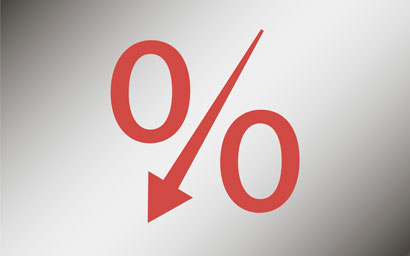Germany’s Union Investment said it had seen strong growth in new business “despite difficult conditions” as retail investors took action over low savings rates.
Net inflows were €9 billion in the first six months, which was slightly below the prior-year period’s figure of €11.3 billion, but it exceeded the average of €8.2 billion for the last ten years.
Assets under management increased by 4.9% to €349.1 billion during the first half of the year. This is an “all-time high” for the firm and was accompanied by the opening of thousands of fund-based savings accounts.
Hans Joachim Reinke, CEO of the firm, said: “The way in which people save is evolving at a rapid rate. Increasing numbers of investors are starting to realise that low interest rates are here to stay and so are switching from interest-bearing products to investments with an intrinsic value.”
He added: “This insight is, in itself, nothing new, but we are now clearly seeing that people are acting rather than just thinking about it.”
Demand for investments with an intrinsic value was particularly high, the firm said, citing open-ended real estate funds as an example. They attracted inflows of €2.1 billion in the first half.
Retail clients also invested €2.1 billion in equity funds, much high than the first-half 2018 figure of €0.8 billion.
Reinke said that as more people are now paying regular instalments into fund-based saving plans, the number of savings fund agreements in place with Union Investment rose by almost 400,000 over the twelve-month period ending June 30 to 2.5 million.
“The trend towards investments with an intrinsic value is also evident here. Equity, mixed and real estate funds are favoured by 95% of investors, and that figure rises to 99% for new investors.”
On average, savers invested €157 per month in the Union’s fund-linked savings plans.
Inflows into new savings plans set up in the last 12 months were even higher, at an average of €224 per month.
Assets under management in the retail business rose by 6.4% year on year to a high of €149.2 billion.
Reinke said Union was growing at a faster rate than the market as a whole. “Whereas the German fund industry has expanded by just over 50% in this turbulent decade, we have more than doubled our assets under management,” he said.
Institutional business amounted to €4.9 billion in the first half of the year, “somewhat weaker” than the €6.6 billion in the prior-year period, though total institutional assets still increased by 3.8%. “Spread products” offering an acceptable level of risk were particularly popular in the first half due to the prevailing backdrop of low interest rates, the firm said, and funds with a focus on corporate bonds saw especially strong demand. Flows into equity funds were described as healthy.
©2019 funds europe





